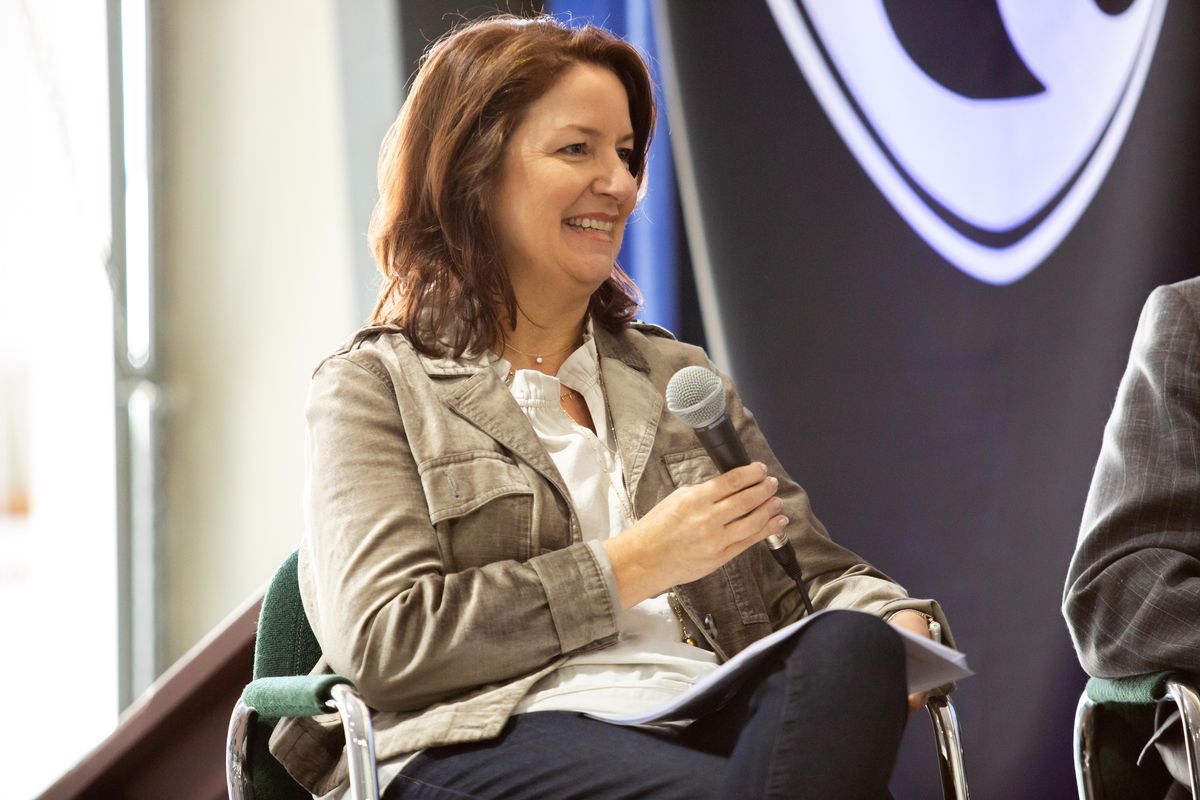Spokane County Treasurer Rob Chase trying to block Avista’s sale

Spokane County Treasurer Rob Chase is deploying a little-known part of federal law to try to stop the sale of Avista Corp. to a Canadian utility, though a top state official says the law in question isn’t relevant to the deal.
In July, Chase sent a letter to the Washington Utilities and Transportation Commission, telling the state to “coordinate” with Spokane County on the regulatory review of the $5.3 billion sale. Chase – who’s running in the November election for county commissioner – says the coordination process gives local governments an “equal basis” for being at the table with state and federal agencies.
“I hope the Avista deal doesn’t go through,” Chase said Thursday. “I see no public benefit for something like this to happen, and the potential for a lot of harm.”
Washington regulators say the federal law Chase is invoking doesn’t apply to the state’s review of Avista’s proposed sale to Hydro One Ltd. of Toronto. For the sale to go through, the state Utilities and Transportation Commission must determine that it would benefit Avista’s customers. A decision is expected in mid-December.
The “coordination” Chase refers to comes from the Federal Land Policy and Management Act, which directs federal agencies to “coordinate the land-use inventory, planning and management activities” with states, local governments and tribes.
In recent years, the coordination concept has gained followers among local government officials in the West, who want more influence on decisions involving timber sales, grazing and other uses of federal land. Proponents say it requires federal agencies to incorporate local concerns and plans into their decision-making. How much legal clout coordination actually has is a matter of debate.
However, coordination doesn’t come into play in the Avista sale, according to the Utilities and Transportation Commission.
In a July 30 letter to Chase, the commission’s executive director, Mark Johnson, said the proposed sale doesn’t involve federal lands or federal projects. The sale review isn’t subject to the Federal Land Policy and Management Act, the National Environmental Policy Act or state environmental reviews, he said.
“The coordination process that you reference is not part of this proceeding,” Johnson wrote in the letter.
He said the proposed sale has gone through scrutiny in quasi-legal hearings and had a strong public involvement process. Four public hearings have been conducted on the proposed sale, and several hundred people have submitted written comments, Johnson said.
When the new premier of Ontario fired Hydro One’s board of directors and accepted the resignation of the CEO in July, the commission extended its review by four months to get additional information, he added. The government of Ontario has a 48 percent ownership stake in the utility and can replace the board.
“Your concerns are valued, and I will forward a copy of your letter to the Commission’s public involvement specialist as a public comment,” Johnson wrote to Chase.
Mary Kuney, the incumbent Chase is challenging for the county commissioner seat, said Spokane County also received a copy of the letter. It indicates there’s “no legal standing” for Chase’s efforts to invoke coordination, Kuney said.
The Utilities and Transportation Commission “knows more about rates than I do” and is better qualified to evaluate the proposed sale’s impact to Avista’s customers, she said.
Avista announced the proposed sale to Hydro One last year. Scott Morris, the company’s chairman and CEO, has characterized the sale as a way for the 129-year Spokane-based utility to retain its legacy by choosing the right partner in an era of consolidation.
Avista customers might be surprised to learn that Canadians are already heavily invested in the U.S. utility industry, Morris said in an interview. Regulated utilities in the U.S. are allowed to earn higher rates of return than their Canadian counterparts, which makes U.S. utilities attractive for acquisition, he said.
Morris said the sale agreements are structured to keep critical parts of Avista’s culture in place.
After the sale, Avista would be run by a nine-member board that would contain a blend of Avista and Hydro One executives and three independent board members from the Pacific Northwest. The board, not Hydro One, would choose Avista’s future CEOs, Morris said.
Keeping Avista’s headquarters in Spokane was important and so were commitments to Avista’s role in charitable giving and local economic development efforts, he said. The agreement also contains “ring fencing” provisions, designed to keep Avista’s finances as separate as possible from Hydro One’s. The provisions protect Avista ratepayers in the event that Hydro One would file for bankruptcy in the future or run into other financial problems, Morris said
Also, state regulators would continue to set rates for Avista’s customers, based on costs that are incurred in each service territory, Morris said.
“We have safeguards, not just handshakes, in place,” Morris said.
The firing of Hydro One’s board of directors and the resignation of the CEO were unexpected, he said. But the “political unrest in Ontario … really doesn’t matter because of the way we structured the deal,” Morris said.
Chase said he doesn’t want a foreign government to own U.S. dams and remains concerned about the potential for higher rates under Hydro One’s ownership.
He accused other public officials of accepting campaign donations from Avista and being unwilling to challenge the sale during a Spokesman-Review podcast with Chase and Kuney on Thursday. Kuney has received a $1,000 donation from Avista and a $1,000 donation from Morris, Chase noted.
Kuney was chosen by Gov. Jay Inslee in 2017 to fill a vacant county commission seat, which she is running to retain. She said the $2,000 from Avista and Morris is a small part of the $77,000 she’s raised in campaign donations.
“My vote is not bought, and will never be bought,” she said.